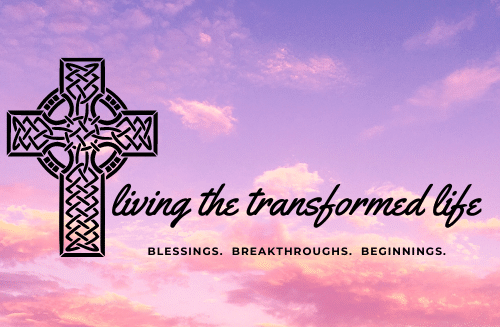
There’s no doubt about it: Americans love their holidays. The calendar is full of them, and we love to celebrate each one. And every year it seems we discover new holidays to enjoy (National Coffee Day? Count me in.)
But there’s also a dark side to some holidays, when old wounds reopen, painful memories resurface, and losses are felt. For many, one of those not-so-fun holidays is Father’s Day.
Father’s Day dates back to 1910, when a woman named Sonora Scott Dodd decided to honor her father, William Jackson Smart. Smart was a Civil War veteran who raised six children as a single parent (an admirable accomplishment in any age.)
But acceptance of the new holiday was slow.
Mother’s Day had first been celebrated in 1907 and was quickly accepted, and designated a national holiday by President Woodrow Wilson in 1914. But Father’s Day wasn’t officially declared a national holiday until President Lyndon Johnson issued a proclamation in 1966, designating the third Sunday in June as Father’s Day.
Why the 56 year delay? Perhaps it’s because fathers were seen as less nurturing than mothers. Perhaps it was because many people, even today, struggle with what is called the father wound.
The Father Wound
Psychologist Dr. Mari Kovanen says, “The father wound refers to father absenteeism, whether emotionally or both emotionally and physically, and/or your father being very critical, negative and even abusive.” The father wound often follows the child into adulthood and can result in:
- low self-esteem
- lack of confidence
- anxiety and depression
- feelings of shame
- internalized anger and rage
- difficulty in relationships
What Was Your Dad Like?
In an article called “Father Heart of God,” Youth With A Mission (YWAM) identified six types of father:
- The Performance-Oriented Father: this father places strict demands on his child’s perfect obedience and high performance. If not balanced with large amounts of affirmation and praise, this can lead to many problems later in life. This father says he loves you only when you meet his expectations.
- The Passive Father: this father has no great demands for his children, and fails to be at home even when he is at home. There is little or no physical touch or words of love that a child needs.
- The Absent Father: this father is out of his children’s lives because of death, divorce, or abandonment. His children often develop abandonment issues such as difficulty relating to God as Father. Sometimes they struggle with guilt that their father’s absence is somehow their fault.
- The Dominant/Demanding Father: this father is emotionally detached, insisting on unquestioning obedience. The family revolves around the father’s needs, and he rules with intimidation and fear.
- The Abusive Father: this father actively practices verbal, emotional, physical, and/or sexual abuse. His child becomes deeply traumatized.
- The Good Father: this father provides all the basic needs, both physical and emotional. He spends time with his children, nurturing and loving them in all the right ways.
Of course these categories are not cast in stone. Characteristics from one category may carry over into another. But you get the idea.
Okay, take a deep breath and slowly exhale. That’s a lot of heavy information to take in, I know. But it does explain why some people have a very difficult time with Father’s Day. Do you see your father in that list? I know I do.
I struggled with this particular holiday for a long time, because my relationship with my dad had always been strained. As a result, I often perceived God the Father as someone who was always either disappointed or angry with me. It took a long time for me to find healing in this area.
If this sounds like you, I have good news for you! Change is possible. You can find healing for that father wound you’ve been carrying.
Healing the Father Wound
Here are the steps you need to take:
FORGIVE. No matter where he appears on that list, you need to forgive your father for all his faults and failings. I was able to do this when I realized my dad was a broken man– just like me. His life was full of poor choices and bad decisions– just like me. He was a man in need of a Savior– just like me. When I was able to picture my dad like that, I was able to forgive him for all the things he had done and all the things he had failed to do. Unforgiveness is a burden God never designed us to carry. Let it go. Forgive Dad.
FOCUS ON THE FATHER. Not your earthly father– your heavenly Father. The Bible clearly identifies God as the good father. Take a look at just a few of the verses about God the Father:
I John 3:1a “See what great love the Father has lavished on us, that we should be called children of God! And that is what we are!” If you’ve accepted Jesus as your Savior, you are a child of God. And God the Father has great love for you! He lavishes (pours out abundantly) His love on you! His arms are wrapped around you every day. Spend some time receiving His love.
Matthew 6:8b “Your Father knows what you need before you ask him.” God is aware of every need you have, in every are of your life– and He is eager to meet those needs. You can trust God to take good care of His children.
Matthew 7:11 “If you, then, though you are evil, know how to give good gifts to your children, how much more will your Father in heaven give good gifts to those who ask him!” God gives good gifts to His children– and He’s a generous Father!
Matthew 10:29-31 “Are not two sparrows sold for a penny? Yet not one of them will fall to the ground outside your Father’s care. And even the very hairs of your head are numbered. So don’t be afraid: you are worth more than many sparrows.” God the Father knows all about you– every little detail. And He places great value on you– His own Son paid the price for you with His blood. You can’t get more loved than that!
I could go on and on (and on) about the Father’s love for you. Regardless of what your earthly father was like, you have a heavenly Father who loves you totally, completely, eternally. His love for you is endless! Focus on Him.
My dad passed away in 2013. He’s in Heaven now, along with my mom. He’s not a broken man anymore. God the Father has made my father whole. And when it’s time for me to go, I know I’ll find him waiting at the gate of Heaven for me.
Love you, Dad. Happy Father’s Day.
Also of interest:
- Lies My Mother Told Me https://www.livingthetransformedlife.com/lies-my-mother-told-me
Has this article been helpful? Leave a comment below, and don’t forget to subscribe!

Our fathers really do shape how we view God. For me, this highlights the importance of relying on Christ to empower and lead us in our parenting. Thanks for a great post.
Thanks, Ginger. You’re right, so many believers are unaware of this. God is the ultimate father!
Thanks so much for this insightful post about fatherhood. I relate most to the Absent Father because my dad sometimes couldn’t be there due to illness. I’m sure this is partly why I struggle to believe God really loves me though I accepted his gift of salvation through Christ many years ago. My spirit cries “Abba Father”, but my heart gets confused.
Keep reaching out to Him, Patti. His love for you is immense, and He will always be there for you!